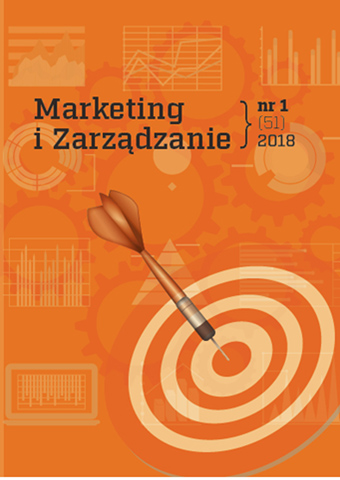
ISSN: 2450-775X
OAI
DOI: 10.18276/miz.2018.51-25


Issue archive /
nr 1 (51) 2018
Model kompetencji kierownika projektu według najnowszych wytycznych IPMA Project ExecellenceBaseline 4.0
(Model of Project Manager’s Competencies According to the Latest Guidelines IPMA Project Excellence Baseline 4.0)
| Authors: |
Katarzyna
Marek-Kołodziej
Politechnika Opolska, Wydział Inżynierii Produkcji i Logistyki Iwona Łapuńka Politechnika Opolska, Wydział Inżynierii Produkcji i Logistyki Dominika Jagoda-Sobalak3 Politechnika Opolska, Wydział Inżynierii Produkcji i Logistyki |
| Keywords: | project manager competences of the project manager project management IPMA Project Excellence Basline 4 |
| Data publikacji całości: | 2018 |
| Page range: | 10 (259-268) |
| Klasyfikacja JEL: | D83 J24 M12 |
Abstract
Project efficiency and effectiveness depend highly on human factor, in particular on the project manager, who is responsible for planning, execution, inspection, supervision and closing of a project. His/her knowledge, abilities and experience influence the project success, i.e. providing the customer a product meeting the customer’s quality requirements within a specified time and at a cost planned. Literature research on project manager’s competencies models has been conducted to indicate which competencies of a project manager are most important. Description of new guidelines of IPMA, Project Excellence Baseline 4.0 has been focused on, which presents competencies required for a project manager. The guidelines present three groups of a project manager’s competencies: human, practical and prospective. Pursuant to the analysis of IPMA competencies model and other assumptions, future challenge for project managers has been determined.
Download file
Article file
Bibliography
| 1. | APM (2008). APM Competence Framework. Buckinghamshire. |
| 2. | ARUP, The Bartlett School of Construction and Project Management, APM (2017). Future of Project Management. London. |
| 3. | Crawford, L. (2005). Senior management perceptions of project management competence. International Journal of Project Management, 1 (23), 7–16. DOI: 10.1016/j.ijproman.2004.06.005. |
| 4. | Dziekoński, K. (2017). Project managers’ competencies model for construction industry in Poland. Procedia Engineering, 182, 174–181. DOI: 10.1016/j.proeng.2017.03.157. |
| 5. | Filipowicz, G. (2004). Zarządzanie kompetencjami zawodowymi. Warszawa: PWE. |
| 6. | Gould, M., Freeman, R. (2004). The art of project management: A competency model for project managers. Boston: Boston University. |
| 7. | Hass, K.B. (2015). The future is now: The 21st century enterprise project manager. Pobrane z: www.projecttimes.com. |
| 8. | Horine, G. (2013). Project management absolute beginner’s guide third edition. Indianapolis: Que. |
| 9. | IPMA (2009). NCB Polskie Wytyczne Kompetencji IPMA. wersja 3.0. Warszawa. |
| 10. | IPMA (2015). Individual competence baseline for project, programme & portfolio management. version 4.0. Zurich. |
| 11. | Jabar, I.L., Ismail, F., Aziz, N.M., Isnaini Janipha, N.A. (2013). Construction manager’s competency in managing the construction process of IBS Projects. Procedia – Social and Behavioral Sciences, 105, 85–93. |
| 12. | Jha, K.N., Iyer, K.C. (2007). Commitment, coordination, competence and the iron triangle. International Journal of Project Management, 5 (25), 527–540. |
| 13. | Musioł-Urbańczyk, A. (2010). Kompetencje kierownika projektu i możliwości ich kształtowania. Gliwice: Wyd. PŚ. |
| 14. | Müller, R., Turner, J.R. (2007). Matching the project manager’s leadership style to project type. International Journal of Project Management, 1 (25), 21–32. |
| 15. | Müller, R., Turner, R. (2010). Leadership competency profiles of successful project managers. International Journal of Project Management, 5 (28), 437–448. |
| 16. | PMI (2017). Project Manager Competency Development (PMCD) Framework Third Edition. USA. |
| 17. | Sadatrasool, M., Bozorgi-Amiri, A., Yousefi-Babadi, A. (2016). Project manager selection based on project manager competency model: PCA–MCDM Approach. Journal of Project Management, 1, 7–20. |
| 18. | Szczepkowski, J. (2013). Wyniki ankiety – Kompetencje kierownika zespołu projektowego, cz. 1, 2 i 3. Pobrane z: www.4pm.pl. |
| 19. | The Standish Group (2016). The Winning Hand, Chaos Report. |
| 20. | Trocki, M. (2013). Nowoczesne zarządzanie projektami. Warszawa: PWE. |
| 21. | Wills, K.R. (2017). The consultative PM: An evolved model for project management competencies. Southington: Kerry R. Wills. |
| 22. | Załoga, W. (2013). Model kompetencji menedżera w nowoczesnej organizacji. Zeszyty Naukowe Uniwersytetu Przyrodniczo-Humanistycznego w Siedlcach, Seria: Administracja i Zarządzanie, 97, 449–468. |